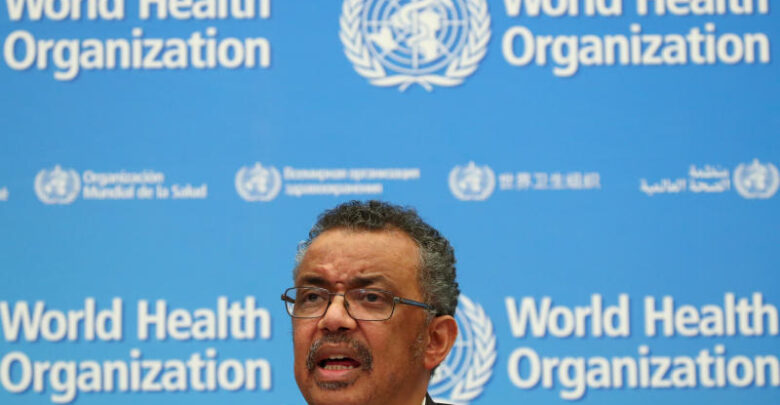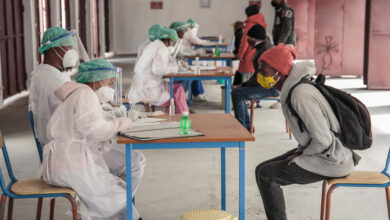
The World Health Organization (WHO) head, Tedros Adhanom Ghebreyesus, on Sunday said the COVID-19 pandemic is still not under control as many countries continue to face steep increases in cases and deaths, despite the fact that more than 5 billion vaccines have so far been administered worldwide, reported UN News.
“But almost 75 percent of those doses have been administered in just 10 countries”, the WHO head told the G20 leading industrialized nations Health Ministers during a meeting in Rome on Sunday.
He pointed out that Africa has the lowest vaccination coverage at 2 percent, which is not at all acceptable.
The WHO has set a target to support every country to vaccinate at least 10 percent of its population against coronavirus by the end of September, at least 40 percent by the end of December, and 70 percent by the middle of next year. But, the wealthy countries’ deals with vaccine manufacturers have limited the vaccines available to COVAX, the UN-backed global vaccine-sharing scheme, and led to vaccine hoarding.
“We can still reach these targets, but only with the commitment and support of G20 countries”, Tedros said.
He said the G20 countries, being the largest producers, consumers, and donors of COVID-19 vaccines, hold the key to achieving vaccine equity and ending the pandemic.
“We can never allow a pandemic on this scale to happen again. And we can never allow an injustice like this to happen again”, the WHO chief said.
Tedros went on to urge the G20 health ministers to change near-term vaccine delivery schedules with COVAX, by fulfilling dose-sharing vows and sharing technology, know-how, and intellectual property to support regional vaccine manufacturing.
He also requested that the countries should come together for the adoption of a legally binding international agreement on future pandemic preparedness and response.






